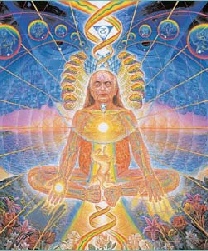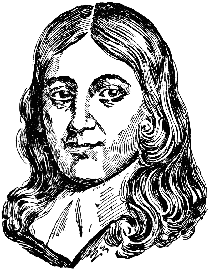

Normally, you would see an ad here. Maybe you are using an ad blocker. I respect that, but this site relies on revenue from ads to continue. Maybe as an alternative you would consider making a donation on the Contribute page.
Normally, you would see an ad here. Maybe you are using an ad blocker. I respect that, but this site relies on revenue from ads to continue. Maybe as an alternative you would consider making a donation on the Contribute page.
Copyright © Sirius Publishing 2006-2019

William Blake
“If the doors of perception were cleansed every thing would appear to man as it is, Infinite. For man has closed himself up, till he sees all things thro' narrow chinks of his cavern.”
William Blake,
The Marriage of Heaven and Hell
Like Dante’s Inferno and Milton’s Paradise lost, The Marriage of Heaven and Hell is a description of the poets visit to hell. Produced between 1790 and 1793 closely after the French Revolution it has many radical ideas.
The small book contains Blake's revolutionary and romantic ideas written in the style of biblical prophecy. This book like his others is a work of art, produced from etched plates of poetry, prose and illuminations. The plates were hand coloured by Blake and his wife Catherine.
Blake admired Emanuel Swedenborg's theological work Heaven and Hell published in 1760 particularly his cosmic mysticism, but disagreed with the conventional moral tone and the polarised view of good and evil. Thus the marriage of Heaven and Hell expresses a unified view of the cosmos where the material world and physical desire are equally part of the divine order.
Do Psychedelics touch God?
Albert Hoffman the discoverer of LSD and DMT wrote,
"Of greatest significance to me has been the insight that I attained as a fundamental understanding from all of my LSD experiments: what one commonly takes as 'the reality,' including the reality of one's own individual person, by no means signifies something fixed, but rather something that is ambiguous—that there is not only one, but that there are many realities, each comprising also a different consciousness of the ego."
—LSD: My Problem Child, 1980
m
Taking psychedelic drugs, particularly LSD and magic mushrooms (psilocybin) can lead to many extreme experiences both good and bad but what is common to many of them is a feeling of extasis i.e. being taken out of one's normal mindset, one's normal way of thinking and feeling about the world and oneself, and entering a more expansive and more connected view of the world. It is the Latin term exstasis which gives rise to our word ecstasy.
Many people who have taken psychedelics in a quest for 'reality' have also studied Eastern religions and are familiar with the concept of dropping the ego in order to achieve enlightenment. To them, this new view of the world is most readily described as dropping or transcending the ego. Whether that is true or not is a separate matter, that is what it feels like. The person who is tripping is able to interact with the world and with other people in a way that seems newer, fresher, more liberated and open to experiences that are simply not available in the non-drug state. This is what writer Aldous Huxley, quoting William Blake, described as opening the 'Doors of Perception'.
 If we look to our model, we can readily picture what is happening. It would seem that under the influence of psychedelic drugs concentration of awareness on the sensation, emotion and intellectual centres is dissolved allowing awareness of information to come from the other centres. This dissolving of the concentration of awareness on the normal centres of perception can be mild through to extreme depending on the dosage of psychedelics, thus at smaller doses perception of the outside world seams richer and enhanced, people perceive things in new ways that are often filled with wonder and joy but as the dosage increases perceptions of a stable outside reality start to disappear.
If we look to our model, we can readily picture what is happening. It would seem that under the influence of psychedelic drugs concentration of awareness on the sensation, emotion and intellectual centres is dissolved allowing awareness of information to come from the other centres. This dissolving of the concentration of awareness on the normal centres of perception can be mild through to extreme depending on the dosage of psychedelics, thus at smaller doses perception of the outside world seams richer and enhanced, people perceive things in new ways that are often filled with wonder and joy but as the dosage increases perceptions of a stable outside reality start to disappear.
At large doses and with eyes closed a person may be completely unaware of the outside world and the somatosensory impressions from the body but be plunged into an inner reality filled with knowledge and understanding. This is what we would expect if awareness was concentrated in the mystical centre of our model.
It should be noted here that contrary to expectation the chemicals that cause this seeming flood of new information into the brain are not excitatory in nature. We would imagine at a physiological level that these new experiences are produced by the brain receiving extra stimulation, in fact the opposite is the case. Psychedelics, whatever the actual chemical, are inhibitory in nature. They tend to act on nerves to stop them firing and to be absorbed into brain centres that shut down other areas of the brain. Thus the loss of the physical senses is to be expected but which may allow access to other centres normally inaccessible.
So what does this say about the psychedelic quest for God? Firstly that access to the mystical centre is not access to God. According to our model, although many people have described experiences of this centre as 'Divine' there is at least one centre beyond this. This will be covered in more depth elsewhere suffice to say that it is only when referring to this other centre that terms such as 'The Creator', God' and 'The Divine' have any real significance.
Can psychedelics really touch God? Maybe that depends on one's idea of God and as finite beings what experience of the infinite could possibly feel like.
